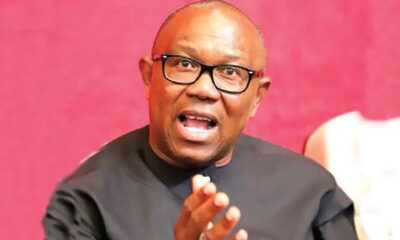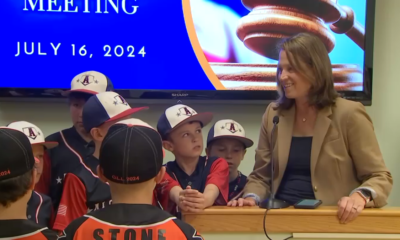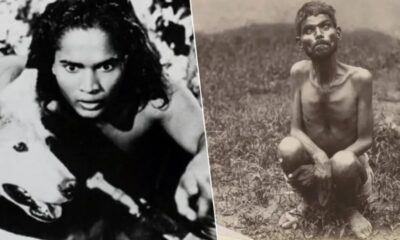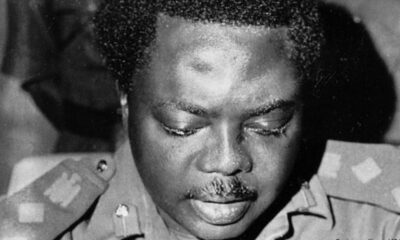Eight of the 14 Nigerian leaders were soldiers and two of them also served two terms as elected presidents.
As Nigeria prepared for independence from British colonial rule, the hopes were high of the birth of a great nation, one which was touted as the giant of Africa and even a potential superpower on the world stage.
Tam Fiofori, a Nigerian documentary photographer who was 18 at independence in 1960, recalled what the pulse of the nation was like at the time.
“There was a general feeling of great national expectations in the air leading up to independence,” the septuagenarian said. “Everybody, particularly young people, envisaged a great united Nigeria that would hold its own compared to newly independent countries like India, Ghana and most importantly would emerge as the leading Black nation in the world with potential to become a first world country soon…Click Here To Continue Reading>> …Click Here To Continue Reading>>
After independence, things moved very fast for Nigeria. Just five years after independence on October 1, 1960, a bloody coup ushered in the military into government. A counter-coup was followed by a civil war that left millions dead and two failed attempts to restore civil dispensations before Nigeria finally returned to democratic rule in 1999.
Between independence and now, 14 men have run Nigeria under 16 administrations, eight of them with military backgrounds. Two of these men, Olusegun Obasanjo and Muhammadu Buhari, both led as soldiers and elected civilian presidents.
First Republic
Nigeria remained a British territory with Queen Elizabeth II as the titular head of state represented by a Nigerian governor-general in the person of Nnamdi Azikiwe. But Tafawa Balewa as the prime minister held executive power as the head of the federal cabinet.
That changed in 1963 after Nigeria became a republic, and the governor-general became a non-executive president. At independence, there were three regions — western, eastern, northern regions, but the midwest region was later created out of the western region in a bid to stave off ethnic conflict.
Mr Balewa, who was born in December 1912 in present-day Bauchi State, was reelected as prime minister in 1964 and Mr Azikiwe retained his position as the ceremonial president.
Late Dr. Nnamdi Azikiwe [Photo Credit: BBC]
Usually referred to as “Zik,” Mr Azikiwe was born in Zungeru, Northern Nigeria in 1905 and died in May 1996, aged 91.
But Mr Balewa was murdered during Nigeria’s first military coup on January 15, 1966. After the shock of his murder, riots broke out in what has been recorded in history as a pogrom against the Igbo people across Northern Nigeria. This was because the January coup was carried out by mainly Igbo speaking junior officers and spared Igbo political and military leaders while many from the other regions were killed.
The coup marked the end of the First Republic and introduced Nigerian soldiers to the intoxicating wine of political power.
Second Republic
Mr Balewa, and his political leader and premier of the northern region, Ahmadu Bello, were among the leaders assassinated in the putsch tagged “Operation Damisa” (Operation Tiger) and led by Chukwuma Kaduna Nzeogwu, an army major, Max Siollun, wrote in his riveting political thriller, Nigeria’s Soldiers of Fortune: The Abacha and Obasanjo Years.
The coup failed and General Johnson Aguiyi-Ironsi, the general officer commanding (GOC) the Nigerian Army, became the head of state on January 17, 1966, aged 42, a position he held for 194 days before northern army officers killed him and sacked his government in a countercoup.
The officers behind the counter-coup of July 29, 1966, included Captain Theophilus Danjuma, Lieutenant Muhammadu Buhari, Lieutenant Ibrahim Babangida and Lieutenant Sani Abacha and were led by Major Murtala Mohammed. Four of those five would later rule Nigeria.
Theophilus Danjuma
Their intent, Mr Siollun wrote, was the secession of northern Nigerian but they later dropped the idea and handed power to Lieutenant-Colonel Yakubu Gowon, who was seen as a safe choice due to ethnic tension in the country at the time.
Former Nigerian Head of State, Yakubu Gowon. [Photo credit: The Guardian Nigeria]
The tension worsened and an attempt by Ghanaian leaders to broker peace through the Aburi Accord in January 1967 failed after Mr Gowon reneged on the accord and the Eastern Region, then led by Lieutenant Colonel Odumegwu Ojukwu refused to accept Mr Gowon’s leadership and insisted on breaking away to form the Republic of Biafra.
The differences soon boiled over and in May 1967, Mr Ojukwu declared Eastern Nigeria as the sovereign republic of Biafra.
To thwart the secession, the federal military government promulgated a decree dividing the four regions into 12 states in an attempt to break the power of the regions. But then, the battle line was drawn and the civil war started on July 6.
Odumegwu Ojukwu
Over two years of fighting between the Nigerian and Biafran troops resulted in heavy casualties, mostly civilians and children. The war ended after the Biafran troops surrendered on January 15, 1970, with Mr Ojukwu fleeing to Côte d’Ivoire.
Mr Ojukwu returned to Nigeria in 1982 and became a politician until he died in 2011, aged 78.
After the war, Mr Gowon moved to repair the ruins of the war with proceeds from the oil boom of the 70s, but allegations of widespread corruption were rife, bringing discontent within the army. He was ousted on July 29, 1975, while attending an OAU (now AU) summit in Kampala, Uganda.
The putschist appointed Brigadier Murtala Muhammad as the new head of state and Brigadier Olusegun Obasanjo as his deputy.
Mr Siollun described Mr Muhammed as having a charisma that occasionally verged on overbearing. He said the former war commander was involved in war crimes, one of which was the summary execution of Biafran prisoners of war.
Mr Muhammed began moves, in 1976, to build a new Federal Capital Territory for which the Justice Akinola Aguda-led panel proposed Abuja. He also created seven new states of Bauchi, Benue, Borno, Imo, Niger, Ogun, and Ondo. READ FULL STORY HERE>>>CLICK HERE TO CONTINUE READING>>>
On February 13, 1976, he was killed at the age of 37 in an abortive coup led by Lieutenant Colonel Buka Dimka. Mr Dimka was publicly executed three months after.
Mr Muhammed was succeeded by his deputy, Olusegun Obasanjo, who conducted a transition to civil rule programme and handed over power to elected President Shehu Shagari on October 1, 1979.
Mr Shagari became Nigeria’s first democratically elected president after his National Party of Nigeria won the 1979 presidential election. Alex Ekwueme was his deputy.
Encyclopedia Britannica noted that the economic crisis of the early 80s shook the Shagari’s administration as it shopped for bailouts from the International Monetary Funds. Mr Shagari cut his budget and expelled over two million foreigners, mostly Ghanaians, in a measure that would be known as “Ghana Must Go.”
Mr Shagari was reelected in 1983 in a controversial poll. Three months into his new term, he was toppled in a bloodless coup on December 31, 1983, that brought Major General Muhammad Buhari to power.
Mr Shagari died in 2018 aged 93.
Third Republic
Mr Buhari alongside his deputy Tunde Idiagbon justified the coup by citing widespread corruption and the country’s flailing economy. They introduced a war against indiscipline and adopted conservative economic policies. Many allegedly corrupt politicians were sentenced to long years in jail by tribunals presided over by soldiers.
In August 1985, Mr Buhari was overthrown in a coup led by his army chief, General Ibrahim Babangida, and detained till 1988.
Mr Babangida’s administration was believed to be one of the most corrupt in Nigerian history and was further infamous for assassinating renowned journalist, Dele Giwa, then the editor of Newswatch. He was said to have been involved in every coup in Nigeria until he left power in 1993, surpassed only in the thirst for coup by his ally, Sani Abacha. Following a failed coup attempt against his regime, he moved the capital city from Lagos to Abuja on December 12, 1991.
Mr Babangida is most infamous for the annulment of the June 12, 1993, presidential election won by Moshood Abiola. Mr Babangida cited “national security” as the reason for his action. He “stepped aside” in August 1993 after establishing an Interim National Government led by Ernest Shonekan. But the political crisis that he contrived lingered, and this paved the way for Mr Babangida’s friend, General Sani Abacha, to seize power on November 17, 1993.
Photos of Past Nigerian Heads of States and President Muhammadu Buhari
Photos of Past Nigerian Heads of States and President Muhammadu Buhari
“1993 was a year of farce — even by Nigerian standards. It featured a presidential election that cost 15% of GDP, only to be retroactively declared void; the military displacement of a civilian government; and three different governments in three months,” Mr Siollun wrote in his book.
“Perhaps the military’s greatest contribution to Nigeria’s democracy was to rule long and badly enough to thoroughly ruin its reputation and disabuse the public from considering it as an alternative government to civilians,” he added.
Mr Babangida is now 77 and he resides in his hilltop residence in Minna. Ernest Shonekan, the man he appointed to head the ING but who was kicked out three months later by Mr Abacha, is now 84.
Mr Abacha’s turn in power was marked by brutality and kleptomania. Critics were jailed and many were killed, including Ogoni activist, Ken Saro-Wiwa. For declaring himself as president, Mr Abiola was kept in jail by Mr Abachauntil he died on June 8, 1998. Mr Abacha’s regime, however, made some progress on the economic front.
He died of heart attack, aged 54 while in office.
The next day, General Abdulsalami Abubakar was sworn in.
Fourth Republic
Mr Abubakar transferred power to Olusegun Obasanjo on May 29, 1999, after the latter won the year’s presidential election.
Mr Abubakar, 78, is the current chairman of the National Peace Committee.
Ex-military Head of State, Abdulsalami Abubakar
Mr Obasanjo, who defeated Olu Falae in the election, served two-terms of four years each. His administration made moves to restore Nigeria’s battered foreign image and embarked on a massive privatisation scheme among other reforms. He has since retired to his Ota hometown where he occasionally critiques successive governments.
A move to alter the constitution and grant Mr Obasanjo a third term in office was quashed at the Senate. Having failed, the controversial election of 2007 ushered in Umaru Yar’Adua who was handpicked by Mr Obasanjo.
Upon assuming office, Mr Yar’Adua declared his asset, the first Nigerian president to do so. He introduced electoral reforms, granted amnesty to Niger Delta militants but could not realise his seven-point agenda due to ill health.
Late Umaru Musa Yar’Adua
After months of medical treatment abroad, he died in Nigeria on May 5, 2010, aged 58. Three months before his death, using the “doctrine of necessity,” the Senate had transferred power to his deputy, Goodluck Jonathan, as acting president.
Mr Jonathan completed that tenure, and he won the 2011 election. His tenure faced lots of security challenges, particularly the Boko Haram insurgency. This culminated into his defeat in the 2015 election to Muhammadu Buhari, the first time an incumbent would be so defeated. He also conceded defeat, a feat rarely seen in Africa. Mr Jonathan has since been on peacekeeping missions across Africa.
Mr Buhari won reelection in 2019, defeating Atiku Abubakar, making him and Mr Obasanjo Nigeria’s only presidents to serve as military heads of state and elected presidents.
SOURCE


 IN-THE-NEWS11 months ago
IN-THE-NEWS11 months ago
 METRO7 months ago
METRO7 months ago
 SPORTS9 months ago
SPORTS9 months ago
 SPORTS10 months ago
SPORTS10 months ago
 IN-THE-NEWS10 months ago
IN-THE-NEWS10 months ago
 METRO7 months ago
METRO7 months ago
 SPORTS9 months ago
SPORTS9 months ago
 METRO10 months ago
METRO10 months ago


